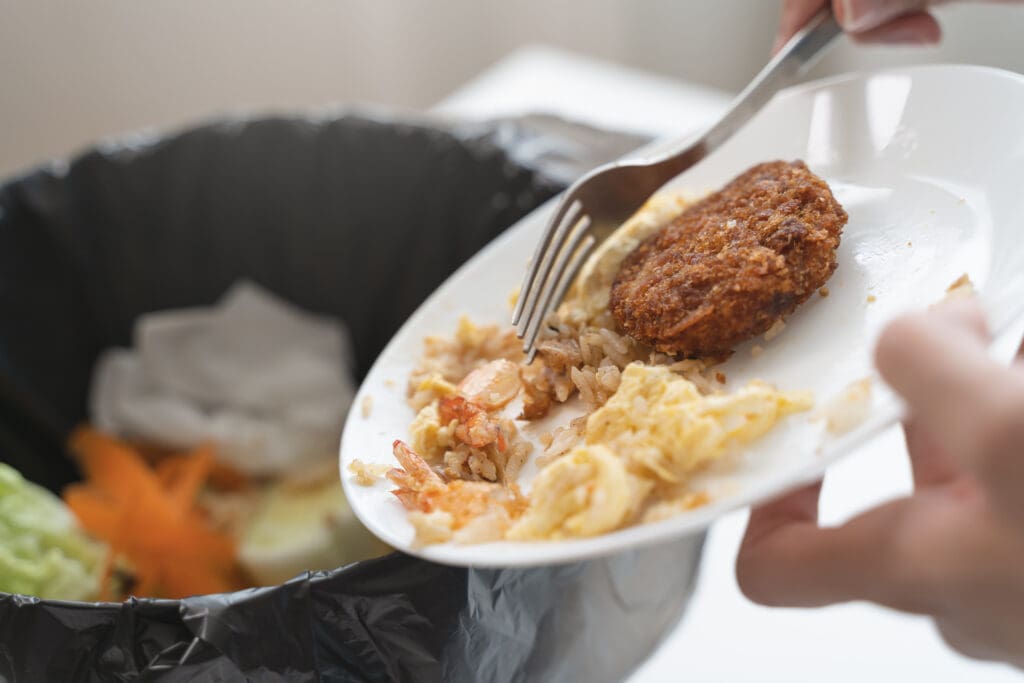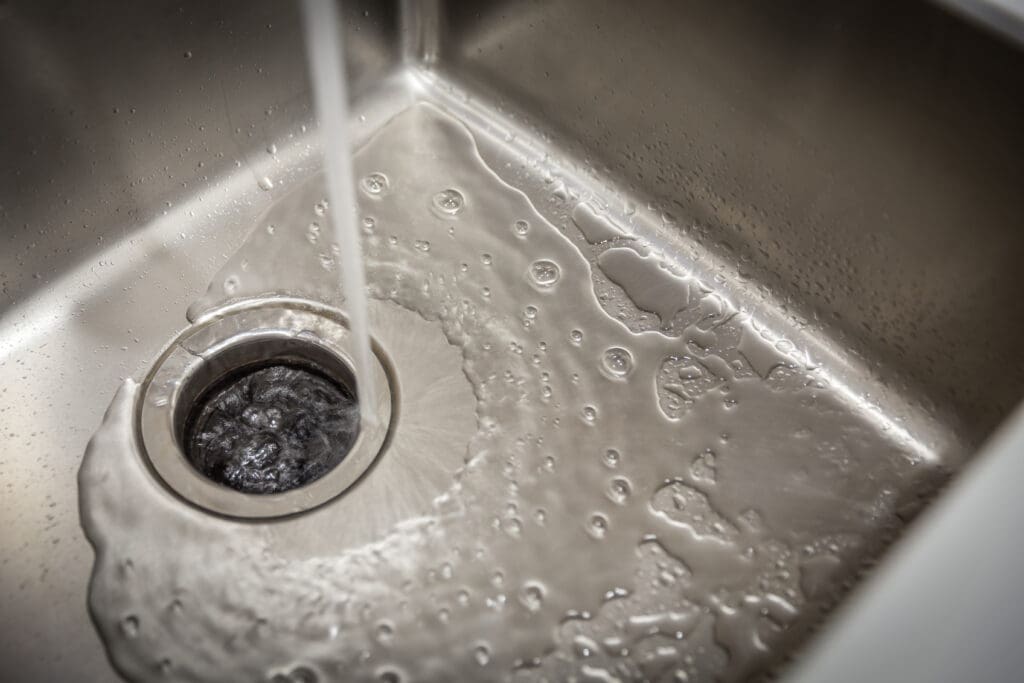Are you a homeowner who relies on the convenience of a garbage disposal? Picture this: you’re in your kitchen, rinsing dishes and disposing of food scraps down the sink drain. It’s a quick and effortless way to deal with waste, right? But did you know improper garbage disposal usage can lead to costly plumbing issues down the line? At Biros Septic & Drain Cleaning, we understand the importance of maintaining a smoothly functioning plumbing system. In this blog post, we’ll explore the common problems caused by incorrect garbage disposal practices and provide solutions to prevent them.
The good news is that by following a few best practices and scheduling regular maintenance with Biros Septic & Drain Cleaning, you can prevent damage to your plumbing system and ensure it works properly for years. Our expert team can assess your needs, determine the right course of action, and provide professional services tailored to your requirements. Don’t wait until a clog or breakdown occurs. Take proactive measures today. Please schedule an appointment with Biros Septic & Drain Cleaning, and let us protect your plumbing system from unnecessary troubles.
1. Reduces the Effectiveness of Your Septic System
Garbage disposals can significantly reduce the effectiveness of your home’s septic system, leading to potential issues and costly repairs. When the disposal grinds up food scraps and solid waste, they enter your septic tank along with other wastewater. However, unlike liquid waste, solid waste does not break down easily in the tank. While the bacteria in your tank are designed to break down solid waste, when too much food scrap enters the tank, the bacteria are overwhelmed and can’t break it down properly or in a timely manner. Eventually, this accumulation of solid waste increases the amount of sludge and can clog the system, hindering its ability to treat and drain the wastewater properly.
To prevent this problem, you must be mindful of what you put down your garbage disposal. Avoid disposing of large quantities of food scraps, tough materials, or items that don’t break down easily, such as banana peels or coffee grounds. Instead, consider composting these items or throwing them in the regular trash. Regular septic tank pumping and maintenance by a professional, like Biros Septic & Drain Cleaning, can also help ensure the system functions optimally.
2. Your Septic Tank Will Need to be Pumped More Frequently

Improper usage of garbage disposals can lead to an increased need for septic tank pumping. Solid waste that accumulates in the septic tank due to disposal usage will fill it up more quickly, requiring more frequent pumping. This increased usage increases the maintenance cost and puts additional strain on your septic system.
To prevent the need for frequent pumping, it is crucial to minimize the amount of solid waste entering the septic tank. Be mindful of what you dispose of down the garbage disposal and try to limit its usage. Implementing good waste disposal habits, such as scraping plates into the trash before rinsing them, can significantly reduce the load on your septic tank.
3. Increases Maintenance with Your Grinder Pump
If your property relies on a grinder pump to transport wastewater from your home to the main sewer line, improper use of a garbage disposal can lead to increased maintenance needs for the grinder pump. The solid waste and tough materials that enter the grinder pump can cause damage to the blades or impeller, resulting in decreased efficiency, potential breakdowns, and clogged sinks.
Imagine the inconvenience and frustration of dealing with a clogged sink drain. Not only does it disrupt your daily routine, but it can also lead to foul odors and leaks if left unresolved. Clogs can also put undue strain on your sewage ejector pump or septic grinder pump, potentially causing them to break down or operate inefficiently. This malfunction can result in costly repairs or even the need for a complete replacement. The last thing any homeowner wants is to deal with a plumbing emergency that could have been prevented by proper garbage disposal usage.
To prevent these issues, it is crucial to only dispose of appropriate items down the garbage disposal. Avoid putting hard materials, fibrous food scraps, or anything that could potentially damage the grinder pump. Regular inspections and maintenance by Biros Septic & Drain Cleaning can help ensure your grinder pump operates smoothly and efficiently.
4. Increases Sewer Cleaning in Gravity Systems
For properties with gravity-based sewer systems, garbage disposals can contribute to increased maintenance and cleaning needs for the sewer lines. The solid waste and food particles that enter the sewer lines from improper disposal can accumulate and form clogs, leading to slow draining or backups in sinks, toilets, or other drains.
Many homeowners underestimate the impact of certain tough materials on their plumbing systems. From banana peels to solid food particles, these substances can wreak havoc on your pipes, causing blockages and backups. Even though garbage disposals are designed to grind solid waste into small pieces, they are not meant to handle tough materials that can damage the blades or impeller.
To prevent this issue, you must be mindful of what you put down the garbage disposal. Avoid disposing of large quantities of food scraps or tough materials that could clog the sewer lines. Properly maintaining your septic system, including regular inspections and cleanings by professionals, can help prevent sewer line clogging and keep your plumbing system flowing smoothly.
5. Waste of Water

Improper use of a garbage disposal can also result in water wastage. Using excessive amounts of water to rinse food scraps or flush out the disposal can put unnecessary strain on your septic system and increase water consumption.
To conserve water and prevent strain on your septic system, use cold water sparingly when operating the garbage disposal. Cold water will help solidify any grease or fats that may have entered the system, making it easier for the septic tank to break them down. Additionally, practicing water-saving habits in your daily routine, such as fixing leaky faucets and using efficient appliances, can help reduce overall water wastage.
Remember, implementing good habits and being mindful of what you dispose of down your garbage disposal can go a long way in preventing septic and sewer issues. Regular maintenance and inspections by Biros Septic & Drain Cleaning will ensure your system operates efficiently and minimize the risk of costly repairs or breakdowns.
Need Regular Maintenance to Combat Your Use of a Garbage Disposal?
Now that you know the potential risks and issues associated with garbage disposals, it’s time to take action and protect your home’s plumbing system. Ignoring these problems can lead to costly repairs, inconvenient backups, and even environmental hazards. Don’t let a seemingly innocent appliance like garbage disposal become a source of stress and frustration in your life.
At Biros Septic & Drain Cleaning, we understand the importance of maintaining a healthy and efficient plumbing system. Our team is here to help you tackle any septic, grinder pump, or sewer issues caused by garbage disposals. We have the knowledge, experience, and top-notch equipment necessary to keep your system running smoothly.
Please schedule an appointment with us today to assess the state of your plumbing system and address any potential problems. Our professionals will perform a thorough inspection, offer personalized solutions, and provide preventive maintenance to ensure the longevity of your septic system. Don’t wait for a plumbing emergency to strike – be proactive and safeguard the well-being of your home and family.
Resources:

